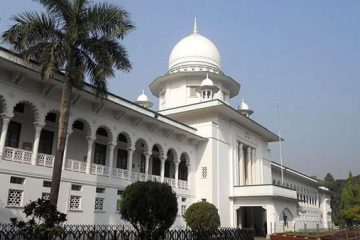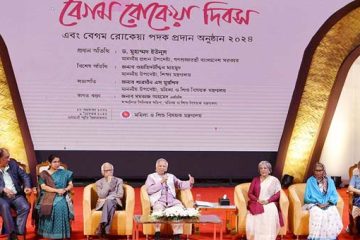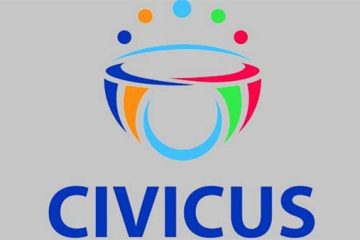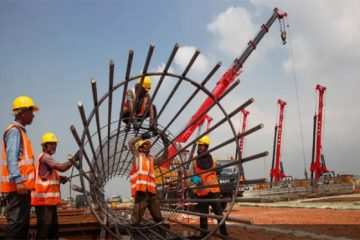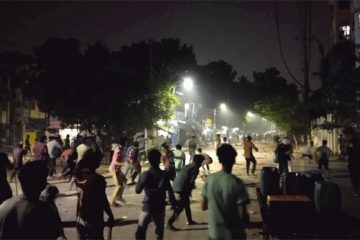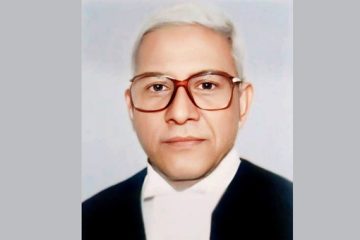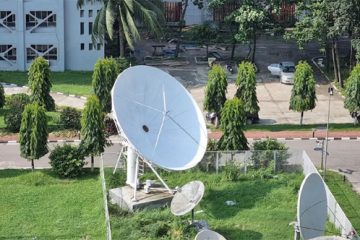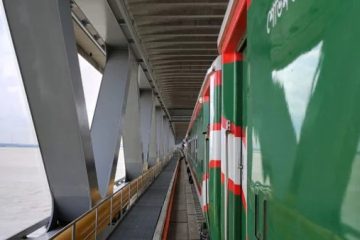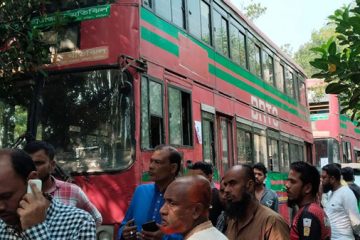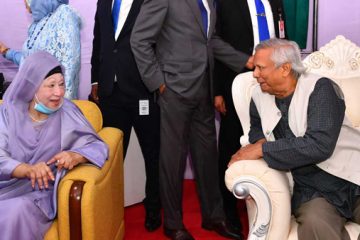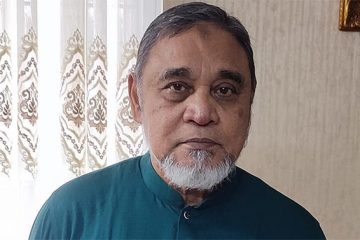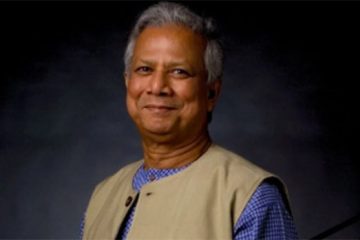The High Court on Tuesday suggested banning the Hatirjheel water taxi service, stating that plying of all types of motorised vessels in a lake is ‘harmful’ for its water.
The bench of Justice Ashraful Kamal and Justice Razik-Al-Jalil came up with the suggestion in the Hatirjheel-Begunbari project protection case verdict, the full text of which was posted on the Supreme Court website on Tuesday.
The nine suggestions the court made in the full verdict include renaming the Hatirjheel-Begunbari project after Sir Jagadish Chandra Bose, a biologist, physicist, botanist and the father of Bengali science fiction.
The High Court on June 30, 2021 in its short verdict in the case asked the government to demolish in 60 days the restaurants, shops and other commercial structures built in the project area — not included in its layout plan — after receiving the full verdict’s certified copy.
The court issued four directives in the short verdict after disposing of a public interest litigation writ petition filed in 2018 by Human Rights and Peace for Bangladesh.
Supreme Court lawyer Manzill Murshid, who appeared for the petitioner, said on Tuesday that there were 27 commercial outlets in the project area, including hotels, restaurants and shops, when the petition was filed.
‘But the authority is yet to remove the structures as directed by the High Court a year ago,’ Manzill said.
He said that the establishment of the structures was a violation of the project layout plan.
The court observed that the project authority and the Rajuk introduced the operation of circular buses and water taxis, installed permanent or makeshift or specialised food shops at 27 points and department stores to meet costs of maintaining the project.
The demolition of the commercial structures was among the four directives issued upon the Rajuk chair, the mayor of Dhaka north city, the Dhaka Metropolitan Police Commissioner, the Hatirjheel police station officer-in-charge and the Hatirjheel-Begunbari project director to protect and preserve the beauty of the Hatirjheel Lake.
The court in the four directives also declared the Hatirjheel-Begunbari Lake a public trust and ordered the formation of a separate authority under the prime minister to oversee the conservation, development and operation of various activities in the area.
Hatirjheel is the breathing point of the capital, the court observed.
It also prohibited the construction of any other commercial structure on the project land.
Buses and minibuses were not allowed initially to ply the 16-kilometre circular roads inside the project.
The court mentioned that the engineering unit of the Bangladesh University of Engineering and Technology and the 24 Engineer Construction Brigade of the Bangladesh Army were jointly appointed permanent consultants for the project.
The court also ordered the construction of footpaths, bicycle lanes, sidewalks for physically challenged people and underground toilets for public use.
It also asked the authorities concerned to ensure the supply of pure drinking water in the project area.
The lake should be a fish sanctuary, the court said.
The court asked the authority to protect the beauty of the Hatirjheel-Bagunbari Lake, which is visited by hundreds of people every day.
The court also observed that the restaurants and other illegally built structures were creating public nuisances, obstructing visitors’ free movement and harming the project’s beauty.


